As restrictions begin to relax across the UAE and we start returning to some form of normality, what's next for us at Biz Group? We have already started trickling back to the office at a limited capacity and we have started attending more face-to-face meetings. A great example is when our CEO Hazel Jackson spoke about leadership during COVID-19 at the Fire Starter Breakfast Event a few weeks ago.
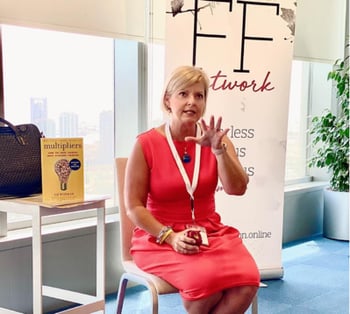
We have also started receiving more enquiries around holding face-to-face teambuilding events again, which is a great sign for what’s to come, and that opinions are shifting around face-to-face events. This is also evident from a recent poll that we ran on LinkedIn that asked our learning community - How ready would you feel to attend a face-to-face event? The results showed a clear winner with 68% of respondents saying 'Ready' compared to 32% of respondents answering 'Not Ready'.

The reintroduction of the Virtual Reality Leadership Lab
With that said and put into perspective, our next big plans are to reintroduce our groundbreaking multiplayer Virtual Reality Leadership Lab—the first of its kind in the Middle East—to our learning community so they can continue to learn the essential leadership skills needed in order to succeed. For this to become a successful reality, we will be implementing strict health and safety measures, which includes but not limited to, regular temperature checks and sanitisations of the VR headsets and controllers after every use.
You may be wondering why this is one our main priorities for the remainder of the year, and one of the main reasons is the business impact and value it brings to learners. We were really excited to see a brand new study conducted by our friends at PwC around 'the effectiveness of Virtual Reality soft skills training in the enterprise' which gave some amazing insight into the benefits of using VR for soft skills training and some amazing statistics to back it up. Let's delve a little deeper into this fantastic study.
Delving deeper the study
To give you context into this study, it was conducted by PwC’s Emerging Technology Group, who have been exploring the business value of virtual reality (VR) for several years. Until recently, VR work in the enterprise has focused on job skills simulation training: flight simulators, safety procedures, equipment operation and maintenance, etc. Industries using VR for safety, repair and maintenance simulation training are seeing improvements in process efficiency, but according to PwC, they wanted to explore whether virtual reality would be as effective for leadership training, soft skills or other human-to-human interactions? and does it have advantages over traditional classroom or e-learning methods? Let’s look at some of the main findings from the study that can arguably prove the worth of VR for training:
The statistics
1. Employees who were trained using VR completed training faster
According to their study, employees who used VR were trained up to four times faster than in the classroom. This is significant as it shows how impactful VR training can be in shorter increments of time, so you can focus on other areas of your business whilst providing impactful training.
2. Employees who were trained using VR were more confident
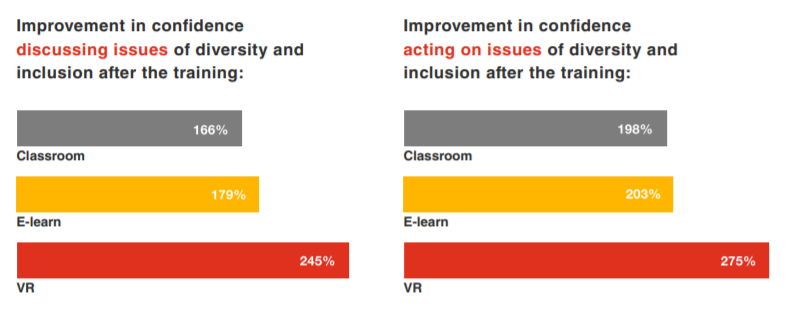 Not only did they complete their training faster, but they also felt more confident to act on what they learned after training, with a staggering 40% improvement over classroom and 35% improvement over e-learning. This was especially prevalent in diversity and inclusion issues, see graph below:
Not only did they complete their training faster, but they also felt more confident to act on what they learned after training, with a staggering 40% improvement over classroom and 35% improvement over e-learning. This was especially prevalent in diversity and inclusion issues, see graph below:
3. Employees who were trained using VR had a stronger emotional connection to the content
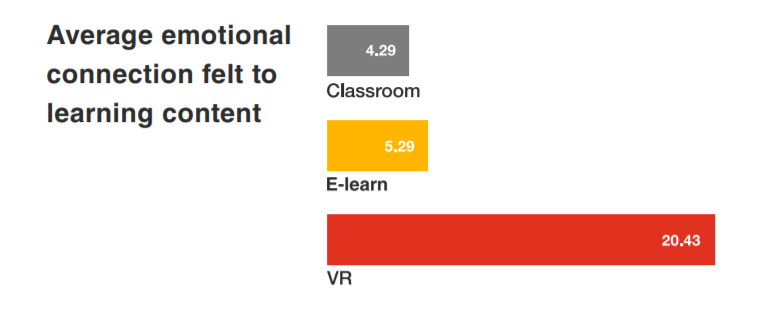
Another key area that was analysed was around the emotional connection to the VR content provided, with V-learners feeling 3.75 times more emotionally connect to the content than classroom learners. PwC concluded this is because people connect, understand and remember things more deeply when their emotions are involved.
4. Employees who were trained using VR were more focused
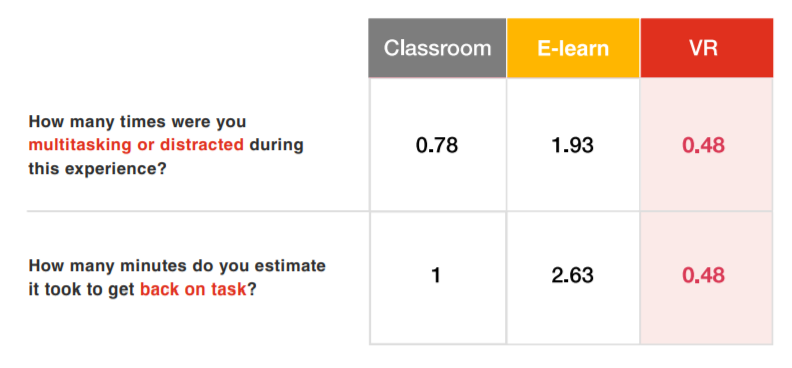
Due to the experience being so immersive, it was also shown to command their attention and vision more deeply, so much that VR-trained learners were up to 4 times more focused during training than their e-learning peers. This proves that when immersed in a VR learning experience, the learner will get more out of the experience and have better business outcomes.
5. VR can be more cost-effective at scale
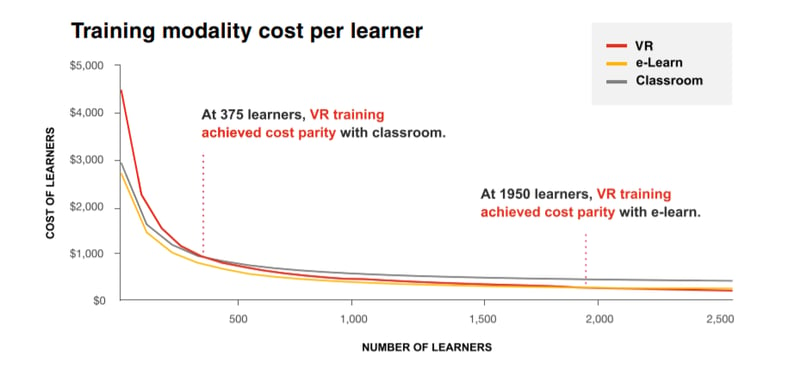
Although VR requires a bigger investment to build and deploy to learners than it’s classroom / e-learning based counterparts, PwC have concluded that VR training is still more cost-effective if used at scale. This is shown when you evaluate the ROI – if you take into account the cost of the employees time, it becomes a better investment. This is shown in the graph below:
Conclusion
We’d like to thank PwC for building this fantastic study to show the business impact of VR training and how it can be used to improve employee confidence, build stronger emotional connections and be more cost-effective than other learning modalities.
Our Virtual Reality Leadership Lab (in partnership with Jenson8) is reopening this month at our offices in Dubai. We currently offer 2 separate VR experiences; Apollo builds on leadership skills and capability; and Boomerang builds on Ethics, you can find out more about them here.
If you have any questions about our lab or the use of Virtual Reality in leadership training, please get in touch with us on info@bizgroup.ae or +971 4 246 1600, we’d be more than happy to help you!







